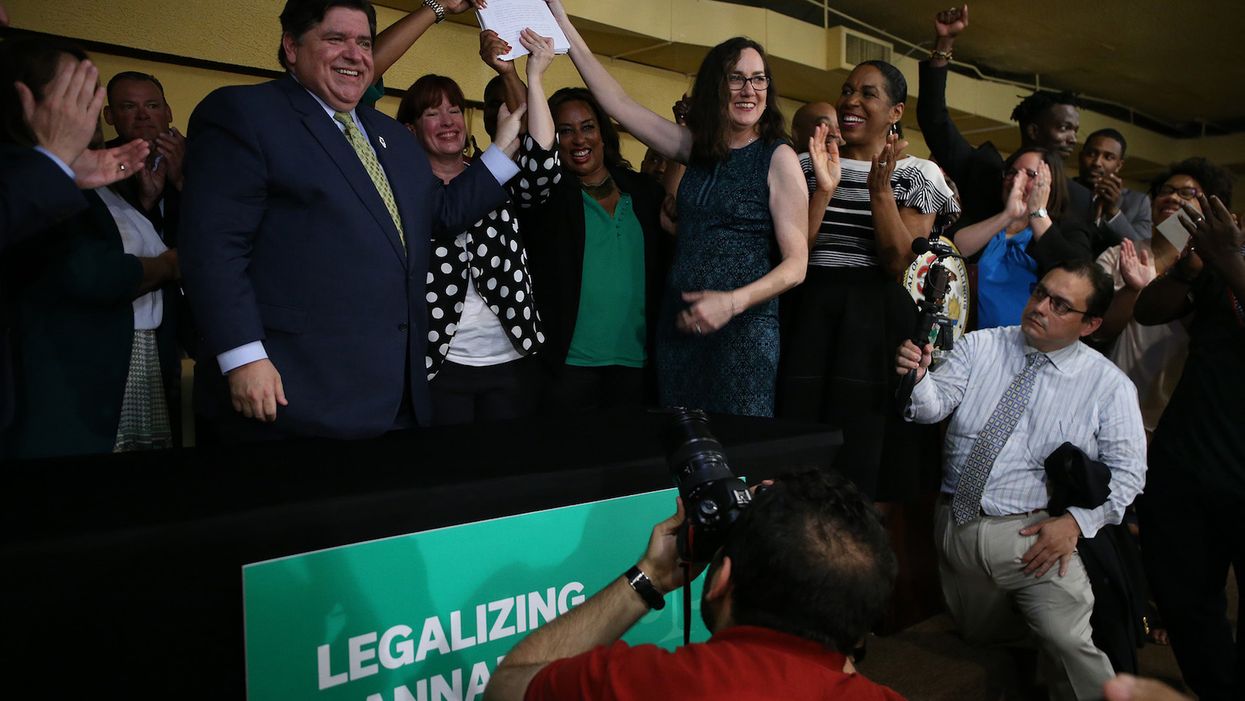
Illinois Gov. J.B. Pritzker celebrates after signing into law a bill to legalize marijuana in Illinois next year, on June 25 at the Sankofa Cultural Center in Chicago. (Antonio Perez/Chicago Tribune/Tribune News Service via Getty Images)

Recreational marijuana will be legal in Illinois next year
One Illinois city has approved a plan to use tax revenue from legal marijuana sales to fund reparations that will benefit black communities, according to the Chicago Tribune.
City aldermen in Evanston, Illinois, approved the creation of a local reparations program Monday with an 8-1 vote, with recreational marijuana legalization set to take effect in the state in January.
"The War on Drugs and mass incarceration have devastated the black community and although policy is being corrected, the impact will remain," said Alderman Robin Rue Simmons, according to The Daily Northwestern. "It is appropriate that sales tax revenue from recreational marijuana be invested in the community in which it unfairly policed and damaged.
"It is time we lead our city past ceremony and apology and into the overdue commitment to a reparative policy," Rue Simmons continued. "With this fund, we can implement programming to directly invest into black Evanston. Our measurements of success can include increased black household income, increase in revenue for black-owned businesses, and improved infrastructure for historically black and redlined neighborhoods."
The city expects marijuana sales to generate between $500,000 and $750,000 annually. The fund will be capped at $10 million. The city's Equity and Empowerment Commission, which Rue Simmons leads, is studying the most effective ways to use the funds.
Areas of focus to direct the funds include housing, education, and economic incentives. Those involved with establishing reparations for black Evanston residents emphasized that the process was not divisive, as some on the national level have said it could be.
"You did not get to this decision through a battle between the black community and the white community," said Kamm Howard, a midwest regional representative for the National Coalition of Blacks for Reparations in America, to those gathered at the meeting. "You got to this decision through reason, through understanding, through rational and well thought-out action. This is important because the number one contention for reparations in America is that it will divide the community, it will divide the nation. You have shown, with your leadership, that is not true."